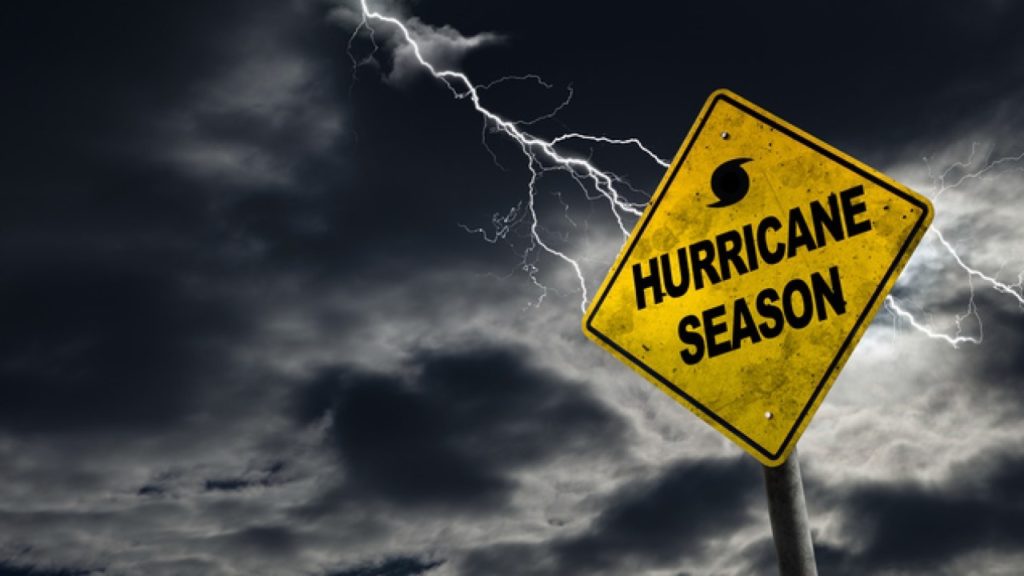Share
Hurricane season is upon us once again (June 1 – November 30). Tropical storms and hurricanes affect most of the coastal parts of the United States. Is your business ready?
Even when there’s no damage to your property, big storms can disrupt the local economy for days or weeks at a time. Road closures, power outages, and mandatory evacuations are all possible.
For the sake of your business and staff, businesses must prepare for hurricane season early. There are several things that can be done before and during a storm to ensure safety, communication, and business continuity.
Discover how to prepare your business for hurricane season with these helpful tips:
Before Hurricane Season
Calculate the potential risk
How resilient and adaptable is your company? Could your business function without utilities like
- Power?
- Water?
- Internet?
In case of property damage, could your office:
- Move to a temporary location?
- Go remote?
- Wait for building repairs?
Hurricanes and flooding can be more dangerous for cities and properties at lower elevations. It’s best to plan and prepare for the unexpected.
Develop a plan
According to FEMA and the US Department of Labor, natural disasters can permanently and immediately close 40% of small businesses. For those businesses without a business continuity plan in place, 75% will fail within the next three years.
Businesses should make a business continuity plan for different scenarios, including hurricanes. Some disasters are harder to predict in advance, so you’ll need a separate Emergency Plan for securing the most important assets and communications.
Additionally, check for state and local government plans, since their guides will take regional factors into account. What options are available before and after an evacuation is officially declared?
Prepare for the worst
When a hurricane is heading your way, you don’t want to be scrambling to prepare, or discover that you haven’t done enough.
- Work with your IT team to find the best solution for the way your company does business.
- Cloud software, which continuously updates off-site servers
- External harddrives for electronic vaulting
- Prepare your office and building by moving sensitive equipment away from windows and the lowest levels.
- Consult with an engineer to assess the structural strength of walls, awnings, and other parts of the building.
- Consider investing in an Uninterruptible Power Supply with batteries and generators to compensate for electricity outages.
- Overhaul your medical safety kits and emergency supplies
Keep your employees updated
Your whole staff needs to be involved in hurricane preparedness.
- Develop business plans for how each department can adapt to different circumstances
- Encourage employees to develop personal plans for themselves and their families
- Ensure your communication strategy includes multiple means of contacting employees
- Update employee contact information and emergency contacts
- Make sure staff understands how their work responsibilities are affected by an evacuation and other disaster scenarios
- Review the best practices for working remotely and see where your business can be more flexible
Inform clients
Your clients should be informed about the ways your services might be interrupted. Feel free to brag to your clients about your off-season preparation work, emphasizing how you’re working in advance to minimize any disruption. Depending on your industry, you may also emphasize how sensitive client data is being secured and protected.
During Hurricane Season
Communicate early and often
From the start of the hurricane season, make sure to closely follow any developing storms. Even when the weather “spaghetti models” make it clear that a distant storm could hit anywhere, take advantage of the opportunity to remind staff about preparedness.
Be transparent about the options being considered. Don’t delay when it’s time to make a decision. It’s better to be safe than sorry, especially when employees and their families may be affected.
Double check your prep work
Make sure your backup systems are working, keeping safe copies of important files. If you have a generator or water pump, then you’ll want to make sure it’s all properly maintained. If you’ve stocked up on perishable supplies, then it’s time to check expiration dates.
Consider scheduling an annual refresher training for managers and employees, reminding everyone of their responsibilities and the company plan for disasters.
Build out remote work capabilities
It’s hard to move the whole office to a short-term rental facility, but a lot of your employees can work just as efficiently from home or remote locations. Train employees to manage the security risks of remote work, especially if they will be working in places like hotels and restaurants with WiFi.
Try to be extra flexible during hurricane season, when some employees may personally feel the need to evacuate their families early. After a disaster causes property or road damage, some employees may not be able to return to their homes or make it into the office.
Some employees will want to return to the office as soon as possible, but you don’t want to pressure your staff to take unnecessary risks. Some parts of your community are probably more severely affected than others, and everyone assesses the risks differently.
Related articles

Seven Major Post-Election HR Implications for Businesses

HR’s Role in Driving Business Success and Growth

The Benefits and Must-Have Features of Employee Self-Service Portals

